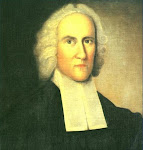The shooting of 17-year old African American Trayvon Martin last month by a 28-year-old Hispanic man named George Zimmerman reminds Americans that racial tension today tends to boil just underneath the surface of our society, and a single event can cause those tensions to erupt out in the open. Today’s New York Times leads with an article whose headline summarizes well the growing anger that African Americans and others are expressing in the wake of the February 26 tragedy: “Race, Tragedy, and Outrage Collide After a Shot in Florida” (www.nytimes.com).
How are Christians of all races to respond to the terrible events of February 26? There is so much that could and should be said in answer to this question, but allow me to offer just a couple of potential answers.
1) On the one hand, Christians must avoid a rush to judge the motives of George Zimmerman. The fact is we simply do not know yet whether Zimmerman acted to harm Trayvon Martin, who was unarmed, because he was racially profiling the teenager. We do know that Zimmerman wanted to be a policeman and a judge, and so he may have acted out of a deeply sinful desire to impress local police officials with his toughness. At this point we the public cannot say exactly what was in the mind of George Zimmerman.
2) On the other hand, it is abundantly clear that Zimmerman violated the rules of the neighborhood watch program of which he was a part, and it seems apparent he also used excessive force in his encounter with Trayvon Martin. Even if we assume that Martin was a genuine threat to Zimmerman, the Bible contains a principle that in matters of self defense, we may use only that amount of force that is reasonably necessary under the circumstances (Exodus 22:2-3). This biblical principle is also written into American criminal law. It is hard to avoid the conclusion, based on the facts we do know about the events of February 26, that George Zimmerman did not violate the biblical principle against use of excessive force.
3) And even though we do not yet know the motive in the mind of George Zimmerman, and even though there are politicians and other leaders who would shamelessly exploit this tragedy for personal gain, the case nevertheless gives those of us who are not African American an important chance to think about what it is like to live in the United States as an African American male. I have read through the years, for example, of African American men who served in the upper echelons of corporate American or our universities, who were refused rides in taxis at night simply because of the color of their skin. Many African American men report that society regularly profiles them, presuming that they are threat when they are nothing of the sort. All of us need to think how we would feel to be under regular suspicion, not because of who were are but simply because of how we look. All of us also need to be the kind of people who, like the Lord himself, seek to look at other people based not “on the outward appearance” but “on the heart” (1 Samuel 16:7).

No comments:
Post a Comment